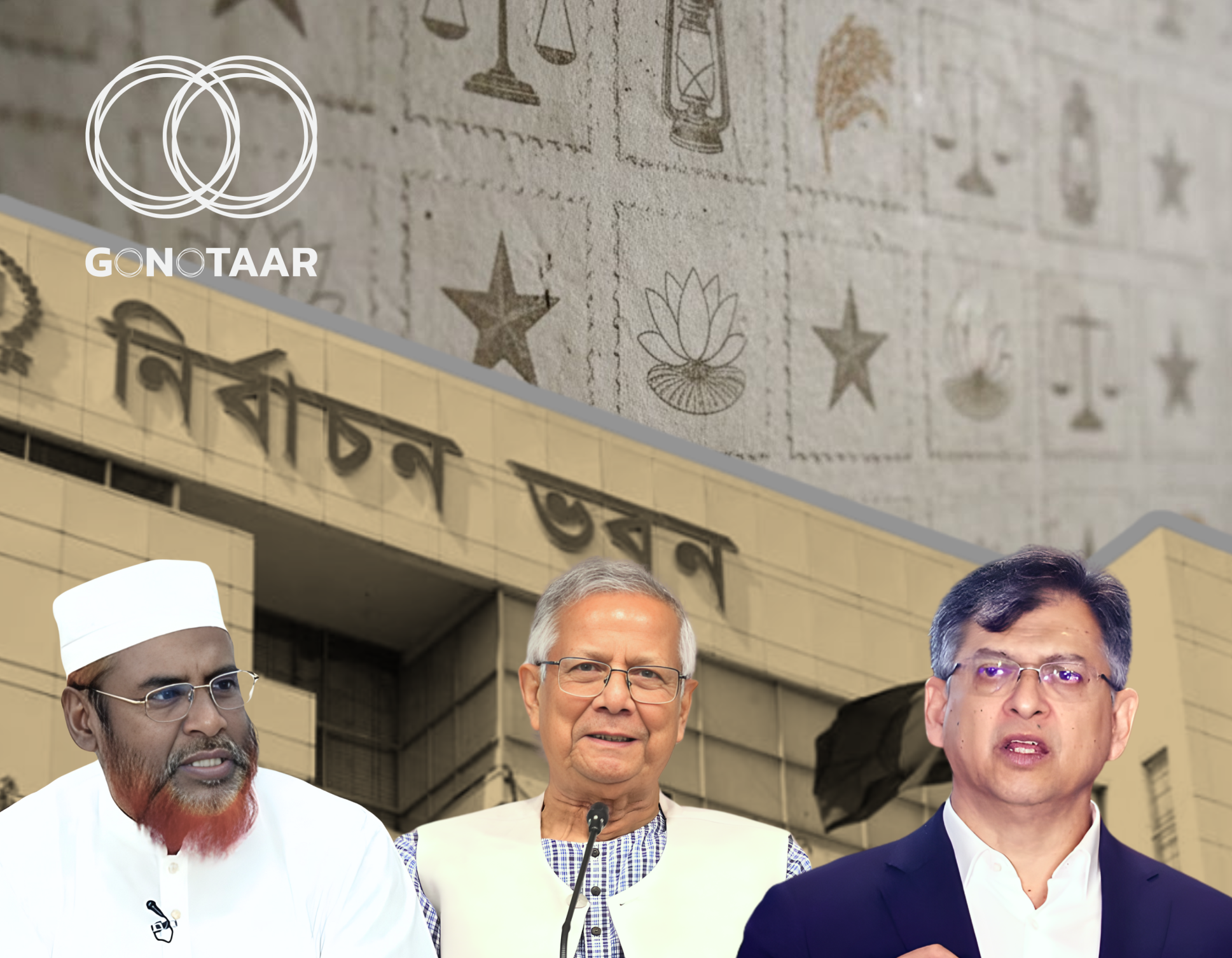Symbol-use rules for alliances trigger politics — Bangladesh Nationalist Party (BNP) raises alarm, Jamaat-e-Islami warns of back-door deal
What’s happening?
A proposed amendment to the Representation of the People Order, 1972 (RPO) that governs Bangladesh’s electoral law is stirring sharp political debate — particularly the clause that candidates in electoral alliances must contest under their own party symbols, not the coalition’s main symbol.
The draft amendment was cleared by the Interim Government’s Advisory Council late October.
However, on 2 November 2025, Jamaat-e-Islami Secretary General Mia Golam Porwar publicly warned that a “secret deal” may be underway to revoke or roll back this amendment. He claimed such a move would undermine a level playing field in the lead-up to the national election.
Historical connection & context
Historically, coalition parties in Bangladesh have enjoyed flexibility in how their allied candidates use electoral symbols — either their own party symbol or the symbol of a larger partner within the alliance. This practice has existed for decades.
In late October, BNP formally objected to the amendment, submitting letters to both the Election Commission of Bangladesh (EC) and the Legal Adviser, asserting that changing Article 20 of the RPO (which governs election symbols) would curtail alliance rights.
Key parties & positions
BNP: Stands firm that the previous rule should remain. In a letter submitted 26 October, the party argued that smaller parties within alliances must retain the right to pick either their own symbol or that of their ally, especially as the practice has functioned well historically.
Jamaat-e-Islami: While not disputing the principle of using their own symbol, Jamaat’s leader Porwar warns that revoking the amendment through a back-channel process would violate election fairness. “If the government secretly reaches a deal to reverse the amendment, there will be no justification for claiming neutrality in the election,” he said.
Government / Advisory Council: On 24 October, officials announced that major amendments to the RPO have been approved, including the symbol-clause, aimed at clarifying party identity for voters.
Implications & analysis
Alliance dynamics: If the amendment holds, coalition partners will need to adjust tactics. Smaller parties may lose the advantage of using a dominant partner’s symbol (which often has wider recognition). This could reduce the bargaining power of smaller alliance partners.
Voter clarity vs flexibility: The government’s rationale is that voters should clearly know which party each candidate belongs to. But critics argue this sacrifices strategic flexibility in coalition formation and could discourage broad alliances.
Level playing field concerns: Jamaat’s warning suggests concern that even the law’s promulgation may be subject to hidden deals — raising questions about transparency and election-integrity ahead of the national polls expected in early 2026.
Timing and legitimacy: The amendment is being introduced in the run-up to the national election. Without broad consultation with all stakeholders (as claimed by BNP), the change may face legitimacy challenges or legal contestation.
What to watch
- Whether the amendment is gazetted and implemented in time for the upcoming election, or whether a revocation or modification occurs following Jamaat’s warning.
- How the EC allocates symbols under the amended law and whether smaller parties accept the revised regime or push back publicly or legally.
- The effect on coalition-building: Will major parties require smaller partners to contest under the major party’s symbol? Will smaller parties resist and contest independently?
- Whether this symbol-rule becomes a litmus test of election-process fairness and whether domestic/international observers raise concerns.
Concluding remarks
For Gonotaar, this development reflects more than just administrative tinkering: it goes to the heart of how democracy and coalition politics operate in Bangladesh. The symbol of a party may seem small, yet for many voters it carries the identity of party, ideology and trust. How this amendment plays out will shape not just election mechanics, but the balance of power among parties, the rights of smaller alliance partners, and the credibility of the election process ahead of the 2026 polls.
We will continue to follow the story, monitor official notifications and interview party leaders and EC representatives as the process unfolds.




